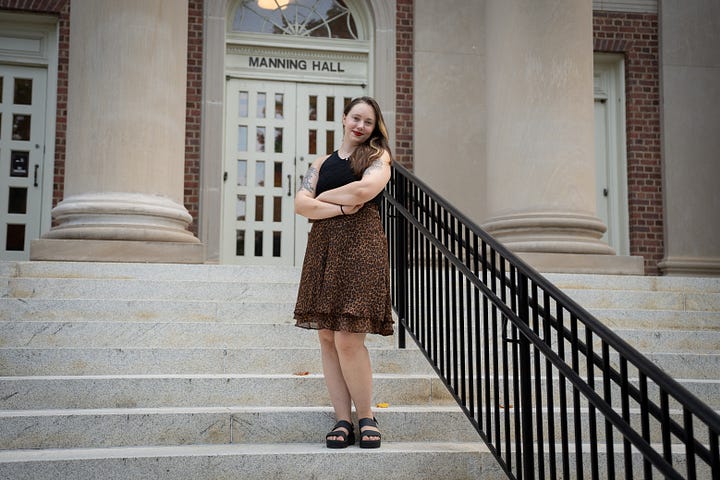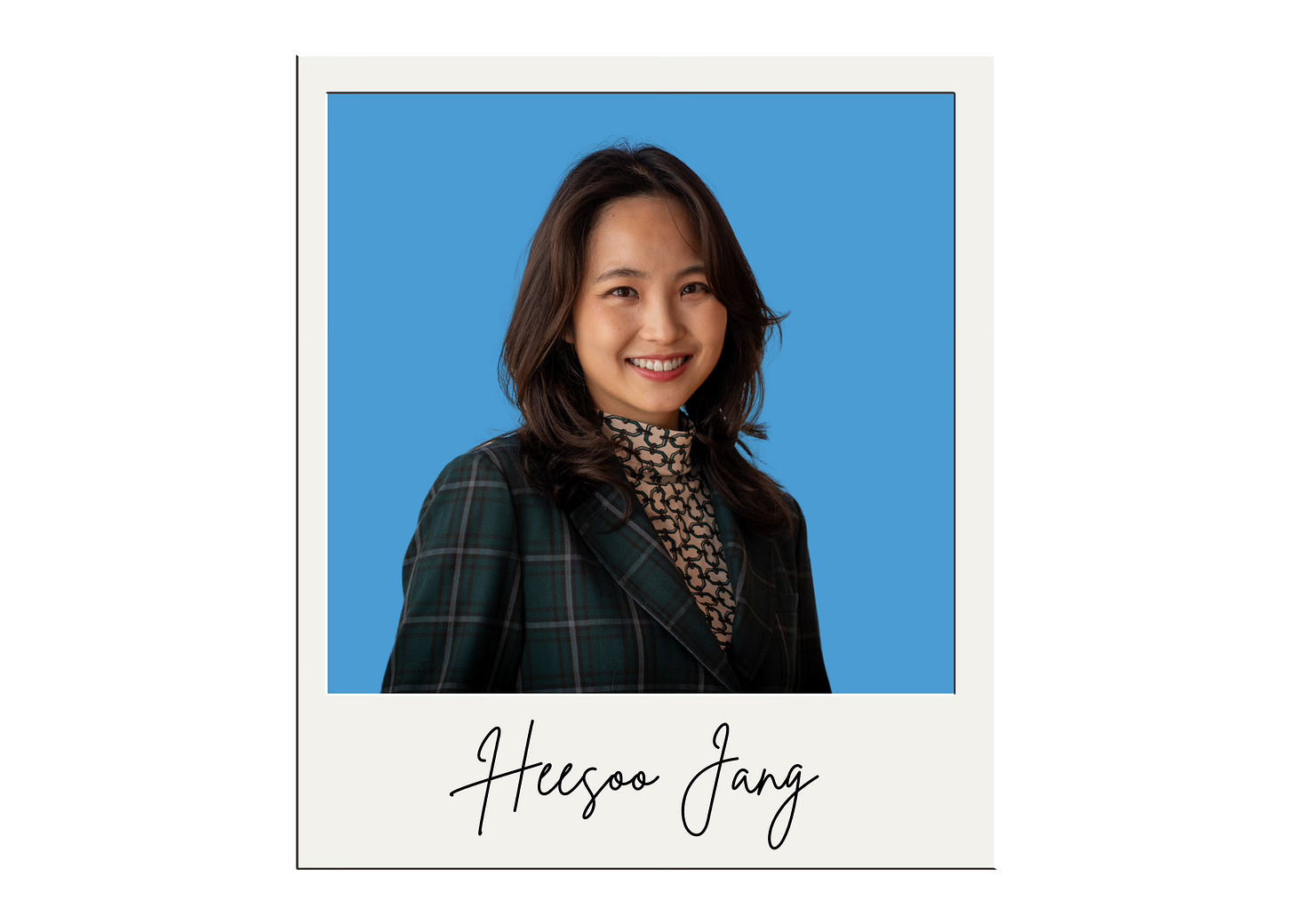Celebrating New Beginnings
We are saying goodbye to CITAP scholars, Heesoo Jang and Yvonne Eadon; we are also reflecting on recent political actions and what they say about the future of democracy and democratic policies.
Farewell to 2 CITAP Scholars
We are thrilled to announce that two of our esteemed scholars, Dr. Yvonne Eadon and Heesoo Jang, will be departing from UNC and CITAP to join the faculty at the University of Kentucky and the University of Massachusetts Amherst, respectively, as assistant professors this fall. This milestone not only marks the next chapter in their academic careers but also highlights the significant impact the CITAP community has had on their professional journeys thus far.
Yvonne Eadon joined CITAP as a postdoctoral researcher in 2022 after completing her PhD in Information Studies at UCLA and serving as a Senior Doctoral Researcher at the Center for Critical Internet Inquiry. For the past two years, she has been a dedicated fellow at CITAP, studying fringe conspiratorial research cultures, the relationship between mis- and disinformation and generative AI, the political economy of conspirituality, and participatory knowledge production within feminized conspiracy theory communities. Yvonne will soon join the University of Kentucky as an Assistant Professor in the School of Information Science, continuing her critical research in a new environment.
Check out this featured article from Yvonne, “You Could Hear A Pin Drop: Queer Utopianism and Informal Knowledge Production in the Gaylor Closeting Conspiracy Theory”:
Heesoo Jang has been an invaluable graduate research assistant at CITAP, contributing to various projects alongside frequent collaborators Shannon McGregor and Daniel Kreiss. As a multidisciplinary scholar, Heesoo studies artificial intelligence ethics and platform governance driven by her passion for equity and democracy. She will be starting her new role as an Assistant Professor at UMass Amherst this fall, continuing the excellent work she has been doing for years.
Check out this featured article from Heesoo, “Safeguarding the Peaceful Transfer of Power: Pro-Democracy Electoral Frames and Journalist Coverage of Election Deniers During the 2022 U.S. Midterm Elections:
Looking Back
In last week’s newsletter, we discussed our trip to Australia for #ICA2024. Heesoo presented during the conference and at the CITAP co-hosted post-conference. While in Australia, we caught up with her to talk about her time at CITAP. She shared that ICA is a unique experience for interdisciplinary scholarship, saying, “I really like the joint panels and receptions because usually, as researchers, we're in our silos. Those joint events show different perspectives and give me insight into things I never thought could be combined.”
Back in Chapel Hill, we also spoke with Yvonne about her insights from her time at CITAP. When asked why she decided to join CITAP as a postdoc, she said she first applied “on a whim,” not believing she would get it. Upon being offered the role, she said, “Obviously, I have to take that,” citing the researchers and work coming out of CITAP as major reasons for her decision.
Yvonne’s favorite memory at CITAP was the Misinformation and Marginalization Symposium, an event we hosted in October 2023, which she was instrumental in planning and executing. She enjoyed meeting diverse scholars and having meaningful conversations in both academic and informal settings. Reflecting on her most challenging moments at UNC, she cited the job market as particularly intense. “Going to campus visits was really intense, and I knew it would be. But you have to experience it firsthand to get it. One of the most helpful things was getting feedback from everyone on my job talk. The academic job market is scary, but CITAP mitigated that with support, encouragement, and valuable feedback.”
Reflecting on her time with CITAP and why she joined as a GRA, Heesoo said that “Coming from a fact-checking center background, I missed the collaborative environment. Shannon [McGregor] told me about the new policy GRA role, which makes collaborations between organizations and the research center. That’s how I got involved. CITAP changed my research trajectory, because I was heading towards non-collaborative research due to the lack of resources and opportunities, but CITAP has allowed me to do this at UNC well.”
Heesoo’s favorite memory with CITAP was “Media and January 6th”, an event we hosted in April where we brought in contributors to a volume about January 6th for a series of panels. Heesoo said, reflecting on this event, that “It’s harder to feel that we’re making a difference when we’re at conferences, studies are done, and the discussions aren’t simultaneously happening, but the conversations at Jan 6 were happening real time. It showed academia as a way to think through what's happening in our world and community.”
Joining UNC and CITAP during the pandemic was Heesoo’s most challenging moment. She realized the importance of in-person connections only after attending events and meeting people. “Online, it was a whole world of just text and research articles, and context was never filled. I didn’t fully understand individual people until I met them in person, saw how they incorporated lived experience into research, and got to know them personally.”
Looking Ahead
Heesoo is excited to take the knowledge and experience she gained working with local NC newsrooms to Massachusetts. She is looking forward to UMass Amherst’s unique approach to teaching, including zine assignments and involving students in more participatory and teaching roles, while continuing her work with critically engaged scholars.


Yvonne is enthusiastic about her future colleagues at the University of Kentucky in the School of Information. She shared, “A lot of the discussions we have as a country focus on different areas politically, but cultural conversations in the queer community often focus on the coasts. Living in North Carolina has given me perspective on what it means to live and work in the South; in a similar way, I think being in Kentucky will be really interesting. Local spaces are always informative for academic work, no matter what you're doing. I want to branch out into working with the local community because I’m going to be rooted there. Having a stable, tenure-track position in Kentucky will allow me to get involved with local libraries and community projects.”
Finally, as demonstrated by numerous GRAs and Postdoctoral Scholars who have transitioned to different jobs at other universities or in industry, leaving UNC doesn’t always mean leaving CITAP. The CITAP research community is inclusive, interdisciplinary, and continually supportive. It provides a lasting network of collaboration and mentorship, ensuring that scholars remain connected and engaged with CITAP’s mission and each other, regardless of where their careers take them.
Both Dr. Yvonne and Heesoo have left an indelible mark on CITAP. We are extremely proud of their accomplishments and excited for their future endeavors.
Publications and Appearances
On July 15th, Daniel Kreiss appeared on DW News, a German TV program broadcast by Deutsche Welle, to discuss Donald Trump’s appearance at the RNC, as well as his choice of JD Vance as his vice-presidential candidate. When asked by the host about Biden’s comment that JD Vance was extremist, Daniel said:
“I think anyone who denies the results of a free and fair election is extreme. It is anti-democratic extremist to try to prevent the peaceful transfer or holding of power. Broadly, from the social-science perspective, from a small d-democrat perceptive, anytime a candidate or any party leaders reject the results of free and fair elections it’s very dangerous terrain for democracy.”
Affiliate Highlights
CITAP affiliate, Roxana Muenster, published a an op-ed with Brookings “Project 2025: What a second Trump term could mean for media and technology policies” arguing that the Heritage Foundation's detailed policy vision for a potential conservative administration poses significant risks to democratic institutions and civil liberties. The comprehensive plan, Muenster asserts, could erode checks and balances, suppress dissenting voices, and undermine the free press, threatening the foundational principles of democracy. The project’s aggressive restructuring aims to concentrate power in the executive branch, raising concerns about government accountability and transparency.
Muenster also highlights that "Project 2025" addresses technology and media policies with proposals that could disrupt current practices and foster harmful environments. The plan criticizes social media platforms for alleged censorship of conservative viewpoints and suggests radical reforms to Section 230 and antitrust laws, potentially allowing misleading information to spread unchecked. Driven by a belief that conservative ideology is under siege, the agenda advocates for weakening institutions deemed hostile to conservatism, which Muenster argues could further polarize and destabilize the political landscape.










